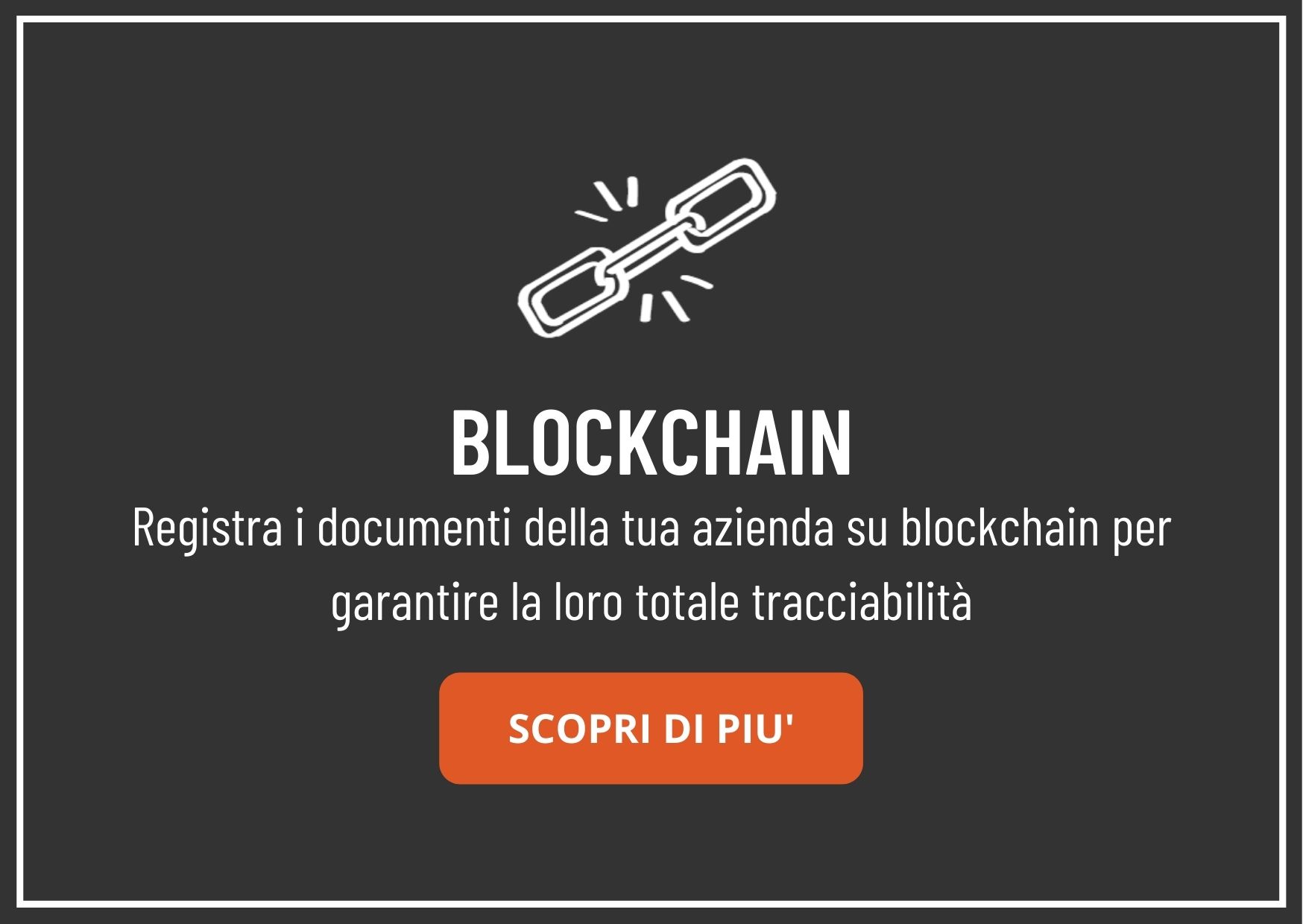Adopting new technologies within companies ultimately means identifying practical applications for solutions, products and services that show interesting theoretical potential. The case of blockchain adoption for businesses is also a similar path: the potential is virtually infinite, but precisely because the horizon is so broad, finding ways to anchor it in the applications needed every day is not so simple.
In the specific case of blockchain, one also has to overcome the hurdle of a concept that is not exactly crystal clear, particularly for those who are not knowledgeable or experienced in the field.
A clear definition of Blockchain
To better understand what a blockchain is and why it strikes such a chord with businesses, let’s resort to the least technical definition possible: it is a shared, immutable data structure. Within it, information is grouped into blocks whose content, once written down, can no longer be modified or deleted.
Being able to have a tool that enables data storage that is shared, accessible and considered immutable in a certified and shared way opens the way for a number of applications that are anything but theoretical and can also be used in an extremely concrete context such as manufacturing.
Blockchain for business: recording product information
One of the simplest uses of blockchain for companies is to store product information. Imagine, for example, the scenario in which a piece of machinery, or more generally a product, receives maintenance work, extended warranties and replacement parts over its lifetime. All of this can be recorded within the blockchain, forming a digital identity of each individual product.
All in all, this is no different from what is done by CRM software, but consider the truly disruptive aspect of blockchain: the fact that the information contained within is certain and immutable. This means that, for example in case you need to certify an operation, offer warranty services or even resell the machinery, its entire product history is recorded in a certified and shared way.

This means more certain quotations, more targeted interventions, and generally achieving a level of specificity that is impossible with traditional solutions.
If you then work in an Industry 4.0 context, this information can be used by the entire supply chain, for example, to proactively receive service interventions, spare parts and so on. This brings us directly to the second point.
Smart contracts are the future for maintenance as well
Anyone working in business has experienced at least once in their life being held up by bureaucratic or administrative issues. When this involves maintenance or supply chain management, any delay can result in considerable economic losses.
On the other hand, we have seen how predictive maintenance can solve the problem of sudden downtime or breakdowns. But how to reconcile the demand for timeliness typical of advanced digital with internal bureaucracy? Smart contracts can be a solution. For example, a machine can automatically generate a service, maintenance or replacement request, and this can automatically generate a smart contract to the supplier, provided the upstream supply chains are properly coordinated.
At this point the whole thing can take place virtually without human intervention, or with only supervision.
Again leaning on the basic blockchain philosophy of having a source of trust shared in the introduction, using smart contracts also makes accounting reconciliations much simpler, both in the case of normal procedures (for example, it is possible to know in seconds the completeness status of a supply) and in the case of possible disputes. In fact, should they arise, it is sufficient to query the blockchain to immediately settle any doubts and Verify the authenticity and completeness of the documents.
Product traceability: unprecedented reliability
As should be clear by now, the main benefits of blockchain-based technologies accrue when crossing the boundaries of the digital to return to the physical world. One of the most interesting topics from this perspective is the use of blockchain in the field of product traceability. For example, the ability to record any type of movement allows for a quick and complete reading of the entire process of a single product, potentially going all the way back to the raw materials. We have already mentioned how, in the case of industrial products, this principle can also be applied to warranty management, while in the field of products for individuals it can be used, for example, as an anti-counterfeiting tool, for the protection of intellectual and industrial property and so on. For example, Bernstein has created a web service that allows an intellectual property to be registered in blockchain to certify its existence, ownership and lawful use.
Very soon every product could have a digital “label” that demonstrates and certifies, for example, the use of sustainable sources, the patents used and their legitimacy. Those who still have doubts about the effectiveness of this technology can take as an example the booming NFT market, whose technology makes it possible to prove the authenticity of digital works in a way unprecedented in the history of technology.
Contact us to receive more information about blockchain technology applications in your company.
